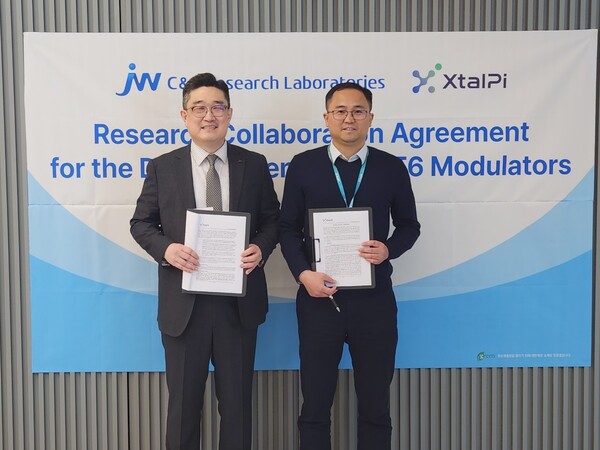C&C Research Labs, a subsidiary of JW Pharmaceutical, and XtalPi, a U.S.-based artificial intelligence drug development company, said they will cooperate in developing small molecule therapeutics, focusing on targeting the STAT6 protein, a key player in inflammatory immune responses.

XtalPi, founded in 2015 by quantum physics experts from the Massachusetts Institute of Technology (MIT), is a pioneering AI drug research and development platform company. It possesses a quantum mechanics-based AI platform and automated synthesis platform as core technologies, aiming to revolutionize drug development by reducing time and effort.
Under the accord, C&C Research Labs plans to leverage XtalPi's quantum physics-based AI drug development platform and automated robotic systems to optimize lead compounds that target the STAT6 protein.
The two companies had secured a small molecule lead compound with a direct binding capacity to STAT6. The new cooperation agreement aims to optimize this lead compound to develop a STAT6-targeted drug candidate.
STAT6 is known to regulate inflammatory immune responses in Type 2 helper T cells (Th2), which are activated by inflammatory cytokines like interleukin-4 (IL4) and interleukin-13 (IL13), leading to conditions such as asthma and atopic dermatitis.
While current therapies target IL4, IL13 cytokines, and their receptors, and Janus kinase (JAK) inhibitors target the upstream protein of STAT, no successful therapies target STAT6 small molecules.
"There is a high medical demand for new targeted therapies due to non-responsiveness and side effects of existing anti-inflammatory treatments," a C&C Research Labs official said. "Our goal is to develop a STAT6 targeted anti-inflammatory therapy, specialized for patient groups with high unmet medical needs."
This collaboration marks a significant step in developing new targeted therapies, potentially addressing the unmet needs in treating inflammatory diseases, he added.

